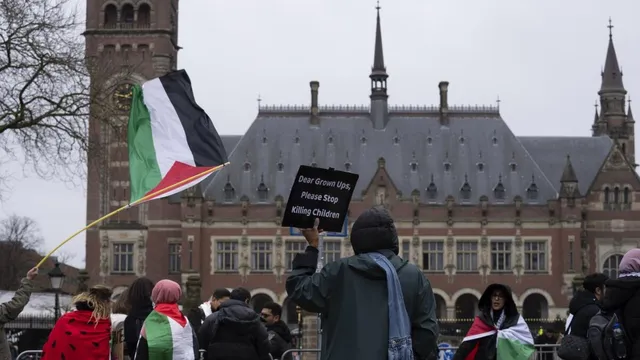In a resounding declaration at the International Court of Justice (ICJ), South Africa has condemned Israel’s policies in the occupied Palestinian territories as tantamount to apartheid. As the ICJ convenes to address the legality of Israel’s actions, South African representatives assert that the occupation is not only fundamentally illegal but also perpetuates discriminatory practices akin to the apartheid era in South Africa.
Understanding the Context:
The Israeli-Palestinian conflict is characterized by decades of tension, violence, and disputed territorial claims. At the heart of the issue lies Israel’s occupation of the West Bank, East Jerusalem, and the Gaza Strip, areas that are home to millions of Palestinians. The legality of this occupation has been a subject of intense debate within the international community, prompting calls for accountability and justice.
The Role of the ICJ:
As the principal judicial organ of the United Nations, the ICJ plays a crucial role in adjudicating disputes between states and providing advisory opinions on legal matters. The current hearings, initiated by a request from the UN General Assembly, seek to address the legality of Israel’s policies in the occupied territories, including settlements, annexation, and demographic changes.
Key Arguments Presented:
During the hearings, participating countries have articulated a range of arguments in support of their positions. South Africa, drawing on its own history of apartheid, has condemned Israel’s actions as tantamount to institutionalized discrimination. Other nations have echoed these sentiments, calling for an end to the occupation and advocating for Palestinian rights to self-determination and sovereignty.
Palestinian Advocacy:
Despite Israel’s absence from the proceedings, Palestinian representatives have seized the opportunity to make their case before the ICJ. They have highlighted the devastating impact of the occupation on Palestinian communities, emphasizing the need for international intervention to address systemic violations of human rights and international law.
Potential Ramifications:
The outcome of the ICJ hearings holds significant implications for the Israeli-Palestinian conflict and broader efforts to achieve peace and justice in the region. A favorable opinion from the ICJ could bolster diplomatic efforts to hold Israel accountable for its actions and pave the way for meaningful dialogue and negotiations.
As the ICJ hearings continue to unfold, the eyes of the world remain focused on The Hague, where the fate of millions of Palestinians hangs in the balance. While the road to peace and justice may be fraught with challenges, the ICJ serves as a beacon of hope for those seeking accountability and redress for past and ongoing injustices. It is imperative that the international community lends its support to this critical process and stands in solidarity with the Palestinian people in their quest for dignity, equality, and freedom.
















